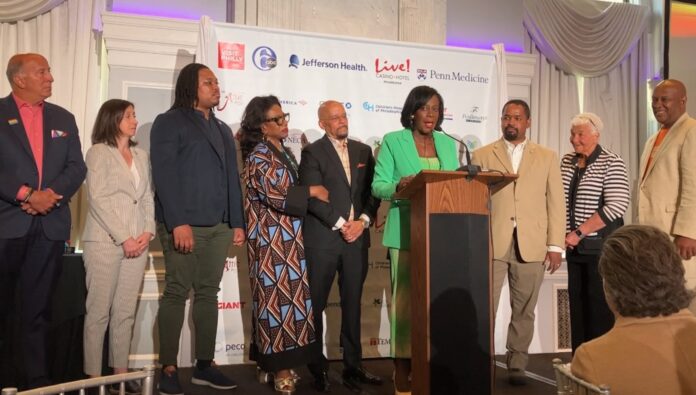
The loudest voices are winning right now, and they aren’t the ones on your side. While Pride celebrations around the country have done their job of spreading LGBTQ visibility, corporations and lawmakers are still bending to anti-LGBTQ forces who have perfected their falsely docile messaging about protecting children and staying in one’s lane. To be clear, the reality is that “protecting children” means blinding them to reality, and “staying in one’s lane” means pushing queer people back in the closet. And they think they’re the ones being harmed? How quaint.
We must remember, though, that combating a loud voice with a louder voice makes everything impossible to hear. I’m not talking about peaceful protests or targeted campaigns, both of which can be very effective. I’m talking about those trying to directly confront those loud voices: Trump, DeSantis, Abbott. Trying to silence them, or to somehow wrestle away the large share of public attention they command, is foolish. The way to truly bring the public, corporations, and legislatures back to supporting us is to build coalitions.
Building coalitions involves many steps, but they aren’t too complicated. First, it’s about finding people and organizations who support your goals or can be persuaded to support your goals. Oftentimes, those are the people and organizations who have been through similar things as you. In the case of the LGBTQ community, a starting point would be other minority groups.
Then, it’s about learning about and understanding the similarities in what each group has gone through. Last week, I was on a panel discussion about hate crime reporting that featured representatives from several minority groups. We came to a rather obvious yet important conclusion: hate crimes stem from the same place, bigotry, and reporting them must come from the same place, truth. We also spoke about the importance of supporting other marginalized groups. Such support is much easier to give once you learn what you have in common. The commonality will be greater than you think.
Finally, it’s about committing to, and doing, direct action in support of all sides of the coalition. Your partners come to your events, and you go to your partner’s events. Your partner chimes in on your issues, you chime in on your partner’s issues. Your partner leverages their connections to help you, you leverage your connections to help your partner. You all commit to being there for each other, in all aspects of the struggle.
Coalitions are important because they extend the reach of your message. They bring your movement to spaces where your community might not be prevalent or even present at all. They help you build relationships with more people than those in your inner circle. Most importantly, though, is that coalitions help you understand the struggle of others. That empathy helps everybody. It helps with creativity, it helps with communication, and it helps with solidarity.
The LGBTQ movement didn’t get to where it is by working alone. It got to where it is by enlisting the help of others and helping those same people in return. While we continue to fight for our rights, we must fight for the rights of our allies too. Working with the coalitions we’ve built is the way through these terrible issues facing the LGBTQ community today. And in return, we must support the people and groups who are supporting us.
Building real relationships is how things get done. People in politics know this. People in business know this. People in communities know this. And a real relationship is built on mutual respect and support. So, this Pride month, and things seem more and more politically dire, make it a point to stand up for the people in your coalition. And if you don’t have one, it’s time to get to work in building it.